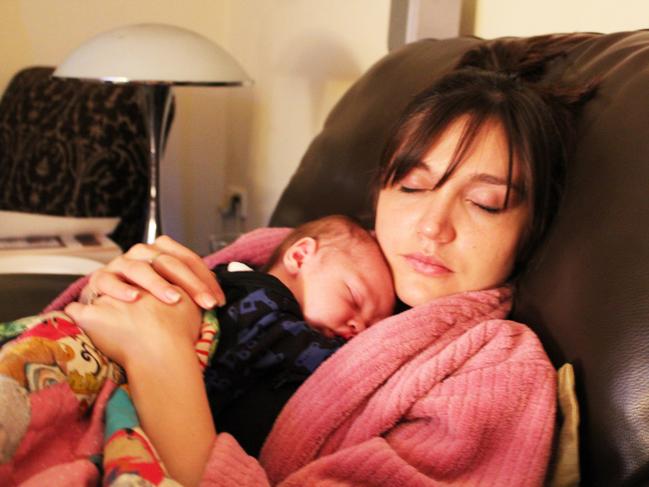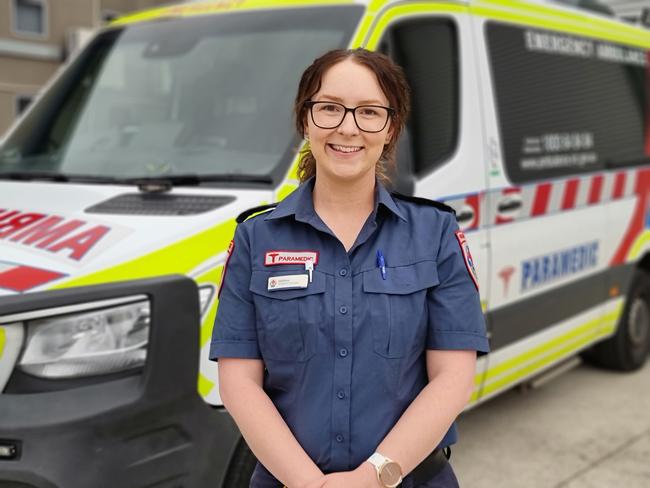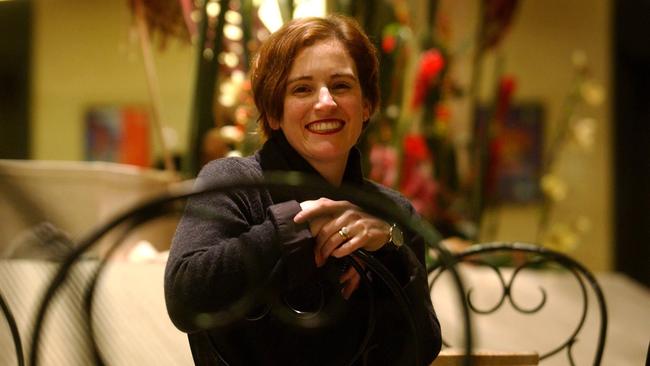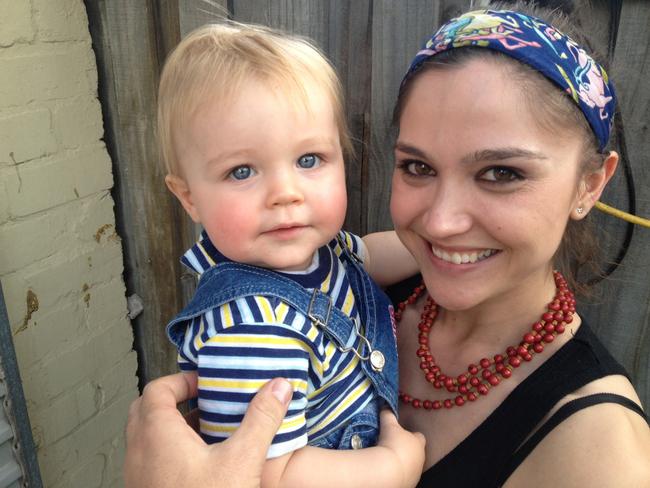Australian mums tell of shame and difficulty with getting help to raise their babies
Struggling new Aussie mothers have opened up about their intense feelings of rage and delusions. Some have also revealed they want to harm their babies.
National
Don't miss out on the headlines from National. Followed categories will be added to My News.
Exclusive: New mums have intense feelings of rage and some want to harm their babies, a devastating new survey of mothers has found.
Women have revealed how they feel violated by the birth process, isolated and unable to navigate conflicting advice about birth, breastfeeding and care of their children.
And it’s not just mums who are struggling, fathers are feeling under pressure juggling work and the financial responsibility of parenthood.
A survey by the Centre of Perinatal Excellence (COPE) Australia’s peak body in peri-natal mental health has exploded the myths and revealed shocking truths about the first 12 months of parenthood.

It’s surprising survey of 2000 women will form the basis of a new national awareness campaign that aims to bust the glossy images of motherhood promoted by advertisers and direct people to help.
COPE has developed a screening program for depression and anxiety around parenthood that connects people to specially trained peri-natal mental health specialists.
In Australia almost 300,000 babies are born every year and COPE says based on the survey results the number of people estimated to experience depression or anxiety during pregnancy in the first 12 months of their child’s life is 58,874.
Almost a quarter of a million (220,777) parents would have “a tough first year” if the survey results were extrapolated out.

Nationally 49,160 couples are dealing with infertility.
Numerous people told researchers they were terrified by potential thoughts of harming their baby – and experienced intense feelings of rage.
Birth trauma left more than a third (37 per cent) new parents feeling “powerless” and “violated” due to physical and emotional trauma leaving them with PTSD.
Poor delivery of care or communication by health professionals left many new parents saying they felt “belittled”, “bullied and “betrayed”, the survey found.
Women reported severe morning sickness that sometimes lasted for the full pregnancy, unwelcome changes to their bodies, and fear resulting from family violence while pregnant.
A number of people in the research opened up about miscarriage and stillbirth and described this as “shattering” and “heartbreaking”.

Founder and Executive Director of COPE Dr Nicole Highet said the new results are startling and a wake-up call that much more needs to be done to help parents.
“The aim of this campaign is really to put the spotlight on these challenges, let people know that they’re not alone in their experience, and that help is available,” she said.
Lack of awareness, shame and stigma was preventing people from getting help or talking openly about what’s really going on for them, for fear of judgment by family, friends and health professionals. Some even fear losing their children,” she said.
The new campaign, The Truth, will tackle challenges experienced across the five stages of trying to conceive: loss: pregnancy: birth and the first year of parenting.
“To date, there has been too narrow a focus on postnatal depression. At the post-natal stage it is too little, too late,” Dr Highet said.
A true preventive approach requires promoting the many challenges that parents may face along the entire journey to parenthood, she said.
Perinatal psychologist Natasha Lindros said one IVF mum who had struggled for 10 years to conceive felt unable to “turn around and say to her family and friends that she wasn’t enjoying it and she was really struggling” she said.
The IVF process itself was also highly stressful as couples ran out of eggs and money and few private obstetricians screened for mental health problems as they should, Dr Highet said.
MUM TOO ASHAMED TO SEEK HELP
As a new mum Ariane Beeston experienced strange hallucinations, believed she’d died and that her baby was a dragon.
The 27-year-old was a trained psychologist working for DOCS but was too ashamed to seek help for her post-natal psychosis.
When her son Henry was born 10 years ago she was perplexed when she did not feel “that rush of all consuming love, that feeling that you sort of read about and you see in the movies”.
“I just felt quite detached from the whole experience like he could have been somebody else’s baby given to me,” Ms Beetson said.

Two weeks after the birth she began experiencing delusions that an almost non-existent nappy rash meant DOCS would take away her baby.
“I would look at him and just couldn’t really make anything out, he was sort of a mess of features and shapes and occasionally, he would turn into a dragon” she said.
She could not eat, lost a massive amount of weight, had panic attacks and isolated herself from friends and family.
“I was increasingly suicidal and just felt like everyone would be better off without me that I’d become a burden,” she said.
Eventually she was admitted to a psychiatric ward for treatment at the mother and baby ward in Burwood.
It took two years for her to recover enough to feel was stable enough to start a new career in media.
“Recovery is tricky, it’s not linear, you feel better, and then you have terrible days and you have terrible weeks,” she said.
She hopes by speaking about her experience other mothers will seek help early.
After her experience Ms Beeston said she never felt strong enough to have a second child but she and her husband “feel very grateful to have a beautiful son who is gorgeous and clever and makes us laugh every day”.
CHILDBIRTH RESULTED IN PTSD
When paramedic Melissa Blizzard went into labour nothing went to plan and she was so traumatised she developed PTSD and still needed help three years later.
Initially her troublesome labour was dismissed by midwives who sent her home before it was eventually discovered her baby was posterior – its backbone pressing on her backbone.
Her plan for a water birth went out the window and initially the only pain relief she was offered was paracetamol.
“I wasn’t being listened to or consulted,” the Melbourne woman said.
After asking for an epidural three times, a new midwife took over Melissa’s care and organised the epidural straight away and she was able to sleep for a while before being told it was time to push.
After two hours of pushing she felt like she was about to die and by the time an obstetrician was called it was too late to go to theatre.
“The obstetrician said your blood pressure is extremely high and the baby’s heart rate is very low, and if we don’t get this baby out now you could both die,” she said.
Her daughter was born with help from a large episiotomy.
When she woke later with her baby on her chest she expected to have this overwhelming feeling of love and protection but “it didn’t happen to me. I felt like it was not my baby,” she said.
It was three-and-a-half years before Melissa received help for the ongoing impacts of birth trauma as well as PTSD via her employer, Ambulance Victoria.
“It’s okay to have a traumatic birth. If you say it’s traumatic then it’s traumatic. It doesn’t have to be anyone else’s definition,” she said.
“If you don’t feel that bond with your baby, that’s okay too. You’re not broken. It’s okay to be feeling those things. But if you start having more bad feelings and bad thoughts than good feelings then it’s probably time that you mention it to someone. No one is going to judge you. It doesn’t mean that you’re a bad mother it just means you need some help”.



